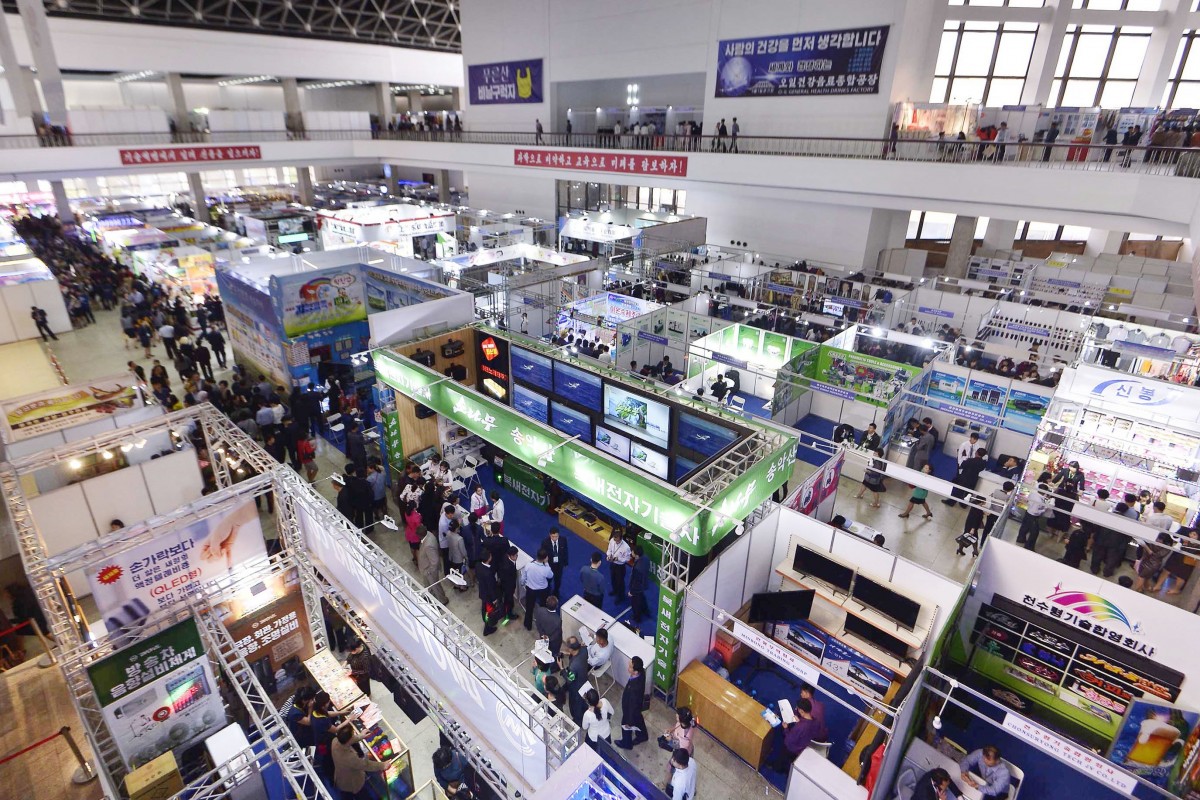Hundreds of international companies defied U.S. sanctions pressure and attended an international trade fair in North Korea this week making it the largest such event on record, analysts said on Tuesday.
The 22nd Pyongyang Spring International Trade Fair opened on Monday with a ceremony hosted by top economic officials, North Korean state news agency KCNA reported.
More than 450 companies from North Korea, China, Russia, Pakistan, Poland and “other countries and regions” showcased a range of products at the fair, KCNA said.
That number would make it the largest trade fair hosted by North Korea, according to an analysis of state media announcements from 2007 to 2019 conducted by NK News, a website that tracks North Korean issues.
Last year, 260 companies reportedly participated in the spring fair.
Among those taking part this year were at least 216 Chinese companies, NK News said in an analysis.
“The numbers tie into a lot of what we’ve seen recently demonstrating real Chinese interest in pushing ahead with business opportunities in North Korea.
“Even though technically not much can go ahead under the current sanctions regime,” said Oliver Hotham, managing editor of NK News.
North Korean officials opened the event by saying it was a chance to expedite trade, economic cooperation, and science and technology exchanges with the participating countries, state media reported.
Companies exploring doing business in North Korea walk a fine line.
Sanctions imposed over North Korea’s nuclear weapons and missile programs would prohibit all joint ventures and most business with North Korea, analysts said.
Some foreign business operations have previously said they were only preparing the ground for when sanctions are lifted.
KCNA said among the products on show were “metal, electronics, machinery, building materials, transport, public health, light industry and food and consumer goods”.
Photographs of the event published by both state media and international participants on social media showed vendors offering health supplements, flat screen televisions and handbags.
Other items are air conditioners and heaters, clothes, kitchen appliances, and North Korean-brand SUVs, among other products.
“A wide range of sectors, and domestic products from North Korea as well as imports,” said British ambassador to North Korea, Colin Crooks, in a post on Twitter.
“Most of the foreign exhibitors were from China.”
Photos posted on Facebook by the Russian embassy in Pyongyang showed its ambassador, Alexander Matsegora, posing at a booth showcasing Russian pharmaceuticals.
Since last year, leader Kim Jong Un has embarked on a diplomatic campaign to try to get the sanctions lifted and allow him to jumpstart the economy.
Under Kim, North Korea has seen a rise in private markets and growing consumerism, but it faces tight political and economic control.
Kim’s second summit with U.S. President Donald Trump in February ended in an impasse, with Washington saying Kim had not offered to give up enough of his nuclear programme to warrant an easing of sanctions.
Since then, North Korea has expressed growing frustration, with negotiations stalled and tensions rising.
In a front-page commentary on Monday, North Korea’s ruling party newspaper said sanctions were designed to create economic hardship and warned North Koreans not to depend on the restrictions being lifted.
State media and international aid organisations say that recent droughts and small harvests could lead to a serious shortage of food for many North Koreans this year.
(Reuters/NAN)

